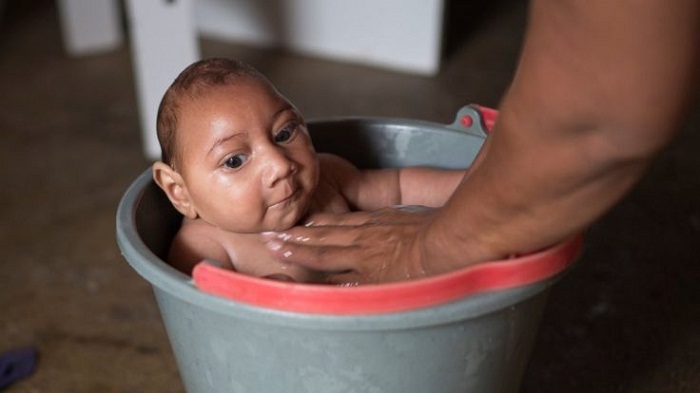Releasing millions of GM mosquitoes

The World Health Organisation has now declared the outbreak to be a global public health emergency and asked for help from countries around the world in defeating the virus.
But scientists at British biotech company Oxitec, a spin off from Oxford University, believe the virus could be brought under control in just a few months if millions of genetically modified mosquitoes were released into the wild.
Trials in Brazil have already shown that the GM insects can causes populations of the dangerous aedes aegypti mosquito to drop by 90 per cent, and causes of dengue to fall by 99 per cent.
In the next few weeks, the Brazilian Health Ministry is expected to give the green light for Oxitec to begin supplying the insects across the country. The WHO is also broadly in favour of the new technology.
Hadyn Parry, Chief Executive of Oxitec, said: “I think a role out of GM mosquitoes could stop this very quickly indeed.
“We’re expecting to get the go ahead very soon and then this could make a real difference.”
Babies whose mothers were infected during their pregnancy have been born with small heads
The mosquitoes are genetically engineered to have a ‘kill switch’ gene which is passed to offspring and prevents them reaching maturity. A second genetic alteration causes the pupae to glow in the dark so that scientists can keep track.
They were initially released into the town of Piracicaba, near Sao Paolo which has a population of around 3,000 people.
Secretary of Health in Piracicaba, Pedro Mello, said the trial had been a success and they were planning to expand the release in the region and investing in its own GM mosquito factory
“The initial project in CECAP/Eldorado district clearly showed that the Friendly Aedes aegypti solution made a big difference for the inhabitants of the area, helping to protect them from the mosquito that transmits dengue, Zika and chikungunya.
“It is important to remember that in dengue year 2014/15 CECAP/Eldorado had 133 cases of dengue, the highest incidence in the city of Piracicaba.
“In 2015/2016, after the beginning of the Friendly Aedes aegypti Project, we had only one case.”
Current methods of control such as spraying can only reduce populations it by 30-50 per cent
However the company has come across opposition from anti-GM campaigners who have even claimed that the release of mosquitoes near Sao Paulo in May caused the outbreak.
“It makes me very angry really,” said Mr Parry. “Most of these people don’t live in dengue infected areas, they live in Derbyshire. It’s a sort of arrogance that somebody in the UK thinks they know better than health officials in other countries, and it is going to cost lives.”
British scientist have also said the campaigners claims do not hold water.
Prof Jonathan Ball, Professor of Molecular Virology at the University of Nottingham, said:”It is absolutely inconceivable to think that any clusters of infection or potential microcephaly cases are down to the introduction of genetically modified mosquitoes.
“The modified mosquitoes that are released are male and we know that Zika virus is spread by the females when they take a blood meal – these have not been modified. The poison gene that the mosquitoes are programmed with can be passed onto female offspring, but these will die before they ever become a mature, flying and biting insect.”
Zika was first discovered in Africa in the 1940s but the first outbreak outside of Africa, Asia and the Pacific Islands only occurred last May, when a case was reported in Brazil. Since then the disease has spread to 32 other countries in south and central America and the Caribbean.
So far six people in Britain, who travelled to infected countries, have been diagnosed with Zika. Two adults were also confirmed with the virus in Ireland this week.
In the US a woman was found to have acquired the virus through sexual intercourse and currently Public Health England is warning couples against trying for a baby for up to six months if either has shown an unexplained rash or fever while travelling to zika infected countries.
Even without symptoms, men have been advised to wear condoms for the first 28 days after returning from one of the 25 countries.
The NHS also this week banned people from donating blood for 28 days if they had been to zika-infected countries. Organ donations will also be monitored for potential infection.















































